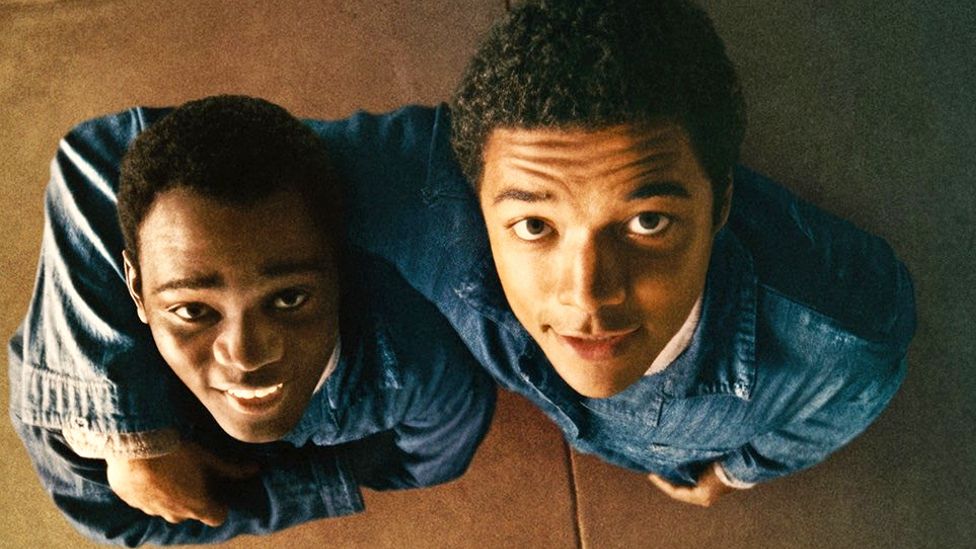Something doesn’t sit quite right knowing that RaMell Ross’ “Nickel Boys” did not win a single accolade at the recent Academy Awards. While I recognize that there were some deserving films – some spectacular ones – anyone who has seen “Nickel Boys” knows it deserved some formal recognition.
This is not the first year a film has been snubbed. True, the winning films were worthy in their own right, but when it comes down to two equally spectacular films, with one falling just short, the outcome can feel unjust.
Back in 1981, the Academy Awards chose “Ordinary People” over the now-classic “Raging Bull.” Two heavy hitters equally deserving of the award, to be sure, but it became an unfortunate, bittersweet close call.
I bring these up to reinforce my previous point: “Nickel Boys” is a masterpiece. From its unique first-person perspective and its masterful use of score to its lingering interpersonal shots, the film excels in every aspect.
Walking out of the small 30-seat theater where I saw the film, my first thoughts went to “Birdman” and “Moonlight” — both films that, like “Nickel Boys,” achieved success through unique perspectives and purposeful composition and character framing.
The technical similarities between “Birdman” and “Nickel Boys” — especially how each film is shot — are plain to see.
The camera never leaves Riggan Thomson in Birdman. The film essentially adopts a subjective third-person perspective as everything is filtered through Riggan’s world, but not in voiceover or direct first-person. It feels like you’re inside his head, experiencing his unraveling in real time.
We don’t get objective reality; we get Riggan’s reality. Similarly, “Nickel Boys” is predominantly told through the eyes of Elwood and Turner.
So, those were my initial connections — distinct films that tell deeply human stories through their unique visual perspectives. But that’s not what made “Nickel Boys” truly great. It wasn’t the technique. It was the way all the pieces came together, the fusion of craft and emotion, that created something unforgettable.
There’s something more to it, something you feel.
Beyond the obvious technical links, there is the gut-level reaction, that quiet connection your mind makes as you sit in the dark theater. The eye test. That feeling where, without knowing why, your brain immediately ties “Moonlight” and “Nickel Boys” together.
The two films share a certain essence, an artistic aura — kindred spirits shaped in different forms but from the same raw material.
Both are told through the lens of a young Black man, and both explore identity and what it means to exist, to survive, and to be seen.
“Moonlight” and “Nickel Boys” dissect Black identity and experience in a way that doesn’t beg for empathy. Instead, it demands understanding through presence. You are called to live in their respective worlds and experience.
Without spoiling either film, I hope to speak to that elusive, almost ghost-like feeling that lingers after watching something that cuts deeper than you expect — that hangs in the room with you long after the credits roll.
The Quiet, Crushing Intimacy: Both films carry an almost whispered power. There are no explosive monologues or swelling scores. Instead, pain and beauty unfold in silence, in stillness, in glances. These stories don’t tell you what to feel; they leave you inside the emotion itself.
The Beauty of Broken Boys: These are stories about Black boys and young men navigating brutal systems — racism, homophobia, abuse — but neither film defines them only by their pain. What stays with you is their capacity for tenderness, for belief, for human connection. “Moonlight” finds it in the touch of a hand on a beach, in a shared meal, in a long overdue conversation. “Nickel Boys” reveals it in Elwood’s unwavering faith in justice, in his evolving bond with Turner, and their heart to heart conversations.
The Atmosphere as Emotion: A big part of what links the two films is atmospheric: the mood, the tone, the way a scene feels more than it explains. “Moonlight” is soaked in blues and purples; it turns pain into something dreamlike and strangely beautiful. “Nickel Boys” is more restrained: the warmth of memory, the cold light of truth, the hush of buried grief. It’s quiet but devastating.
And now, I hope you feel something — stirred, maybe even invigorated. I urge you to watch “Nickel Boys.” Sit with it. Let it wash over you, unsettle you, move you. Bask in its quiet glory, and let it leave its mark.
And when the credits roll, don’t mourn the absence of awards. Don’t feel bad. You and I both know its worth — not measured in gold statues but in the weight it carries and the truth it tells.




